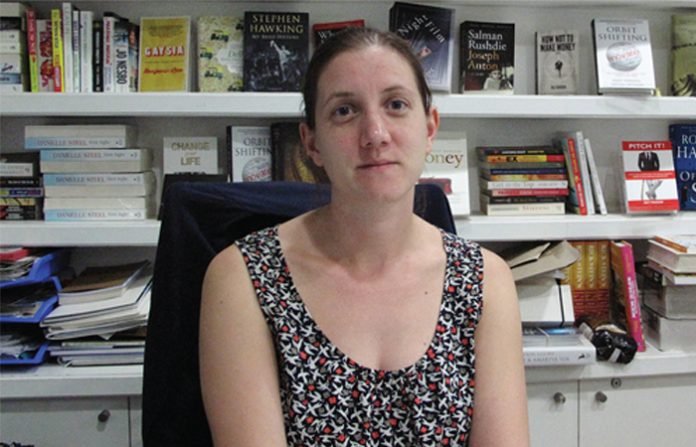“Our ultimate goal is to get more readers to read our books and online stores are helping us achieve our target,” says Caroline Newbury, vice president marketing and publicity of Random House India. Newbury who has had a long stint with the top selling publisher in the UK before she was posted to India last year, says that discounts on books in the UK are far more than what is offered in India. The market there is very tough and competitive with schemes like ‘buy one and get one free’ and bundled offers of ‘five titles offered at the price of three’ abound. “The online retailers are shaking up the market but more importantly, they are reaching out to a greater number of readers,” says Newbury. eBooks are today a big chunk of the publishing business in developed markets and online booksellers have helped it grow. Even in India, you have to just look at the full-page ads that Amazon is running for its Kindle tablet to see how aggressively it is pursuing the eBook business.
Amazon dominates UK eRetail
The UK has just around 1,000 retail bookstores for a population of 60`million which is less than half of its European neighbours France or Germany. Amazon has two distribution models in the UK, one where they warehouse and sell their own products and another where they offer the marketplace model for third party retailers. Not only in books, but in all retail and electronic goods that Amazon sells in the UK, it has mounted pressure on established brick and mortar players like Tesco and Carrefour by improving supply chain efficiency and aggressive pricing. Today it controls more than 40% of the £2 billion (`20,000 crore) British book market and over 75% of the eBook segment.
Based out of tax haven Luxembourg, Amazon pays little or no taxes in Europe, but does not show profits either. It invests almost all its earnings in building half a dozen giant fulfilment centres (FC’s) each year that permit it to keep growing at over 20% per annum.
The British booksellers association says 70 independent bookshops closed last year, with the total number falling from 1,535 in 2005 to 1,028 currently. Lion and Unicorn, the high profile indie bookseller for children closed shop at Richmond in South West London after 36 years in July 2013, “Due to rising costs and the Amazon effect,” says its 70-year-old owner Jenny Morris.
Online bookstores improve reach
“There is no definite report that retail bookstores are shutting down only due to deep discounts,” says Newbury. “Buyers do not shop only on price; I believe it is just one of the many reasons.” Quick delivery, ease of search and discovery go hand in hand to attract and bring in the buyers including many new readers who have no time to visit bookstores. Even the current economic downturn and rising costs are reasons why small businesses have shut down and it is important to get efficient, scalable models to replace them. When asked what she thought about the deep discounts offered by the online retailers in the Indian market, she said, “We don’t set the prices which they can offer on retail and it is up to them whether they offer 10% or 90% off.”
Amazon isstill not a big force in the Indian eRetail market that has close to 100 players, the few dominant being Flipkart, Myntra, Jabong, eBay, Zansaar and Urban Ladder.It has, however, the most potential and the one likely to last the longest.India with 205 million online users has a tiny eRetail market of just US$ 1.5 billion (`9,000 crore) compared to US$ 52 billion of Japan, US$ 64 billion of China and US$ 177 billion of the US.
India hasthe slowest growth rate even in the emerging markets and a high casualty effect on eRetailers because consumers want to pay by cash after seeing the product.It will take three yearsfor this model to kill most major eRetailersin the market because the volumesin India are nowhere like China where a similar model of delivery against cash payment exists. The Indian retail book trade may breath easier just knowing that the rash of discount wars is not going to last, but they, nevertheless, need to improve on many frontsto keep Amazon from making them obsolete.


















